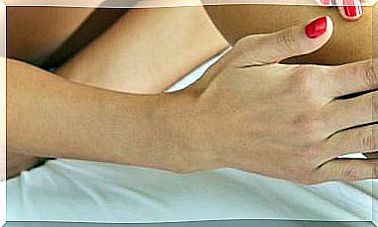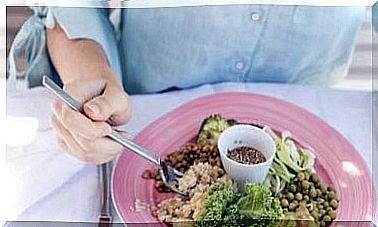How To Adjust Your Biological Clocks To Take Care Of Your Health
The 2017 Nobel Prize in Medicine went to Drs Hall, Rosbash and Young, for their discoveries about biological clocks. How do they influence your health and well-being?

Health and well-being depend on millions of processes that take place inside cells, such as the synchronization of cells with rhythms of different duration, most of them lasting 24 hours, which correspond to the course of the day and the evening. These processes obey the so-called “biological clocks”.
Nobel Prize to the discoverers of the secrets of the biological clock
Doctors Jeffrey C. Hall, Michael Rosbash and Michael W. Young received the 2017 Nobel Prize in Medicine on October 2 for discovering details about how the cells of plants, animals and humans adapt their biological rhythm so that it is synchronized with rotation. from the earth.
Their findings began with the isolation of the gene that controls the daily biological rhythm by encoding a protein that accumulates in the cell during the night – called PER, from the period gene – and degrades throughout the day.
Then they discovered a second gene, which encodes the TIM protein – timeless , timeless – that binds to PER to form the self-regulating rhythm circuit. They finally found the mechanism by which light synchronizes the clock.
Circadian biological rhythms regulate everything from sleep and the evolution of alertness to the secretion of different hormones, body temperature, blood pressure, energy production in cells, cell division, immunity or the elimination of toxins.
What happens if your biological clock goes out of whack?
Therefore, misalignments in the body’s clocks can cause or initiate the development of various health problems. The most common are sleep disorders, which in turn promote immune, metabolic and neurological disorders.
In the short term, the rhythm alteration affects memory and in the long term it causes sleep disorders, increasing the risk of diseases such as type 2 diabetes, cancer and heart disease.
The research of Salvador Aznar Benitah, from the Catalan Institute for Research and Advanced Studies (ICREA), proves that the cells of the skin, liver and muscles are damaged more with aging if the circadian rhythm is lost. This can promote cancer and other degenerative diseases.
According to Rosbash, it is also quite possible that it is related to depression. The influence of rhythms on health should make us aware of the need to “go to sleep at the same time every day, be aware of our own clock and maintain fixed hours”.
A day of harmony with biological rhythms
Not only can we try not to stay up late so as not to seriously misadjust the clock, we can also organize our activities so that they adapt as much as possible to the state of the body at all times.
In this way we will promote health in general and even increase our performance and our sense of well-being at every moment.
Let’s see what a journey can be like that takes into account what we know about our biological clocks.
- From 6 a.m. to 9 a.m. It is the time when light cuts the secretion of melatonin (the sleep hormone) and increases testosterone. It’s a good idea to open the windows to let in the light and even go for a walk before breakfast.
On the other hand, it is not advisable to do an intense exercise. The blood vessels have not yet reached their greatest flexibility, the blood is thick, and the blood pressure is high. In fact, these are the times when heart attacks in vulnerable people are most frequent. - From 9 to 12 hours. Alertness is increasing, and if we have rested well, we will find ourselves at full intellectual performance, as cortisol is at its maximum. Short-term memory is at its best during the day. It is convenient to work with natural light.
- From 12 to 15 hours. There is a turning point when it comes to eating. A biological nap occurs as a consequence of gastric activity. The level of care drops, so much so that traffic accidents increase. The drowsiness is aggravated if you drink alcohol.
- From 15 to 18 hours. The body is recovering tone and around 17 o’clock it is at its best, with the highest levels of coordination and capacity for muscular effort. Take advantage of it, if you can, to exercise.
- From 18 to 21 hours. Dinner time should be closer to 6pm than 9pm. A late and heavy dinner is going to digest worse. Some studies suggest that a late dinner habit increases the risk of obesity and diabetes.
- From 21 to 24 hours. In nature, the light diminishes and changes color, and the body prepares itself for rest. At home we can avoid exposure to intense and bluish lights (mobile phones, computer screens, etc.). The pineal gland will release melatonin to sleep and regenerate the body.
- 24 to 3 hours. Bowel activity stops. Toxins accumulated in the brain are eliminated. The levels of care are very low and the risk of accident is multiplied when carrying out any activity.
- From 3 to 6 hours. Body temperature is low and energy is used for recovery processes. Little by little we prepare to wake up.
Biological clocks in medicine
The discoveries of the Nobel Prize winners can be instrumental in the development and improvement of treatments for many diseases.
For Michael Young, “we are only beginning but the findings open us to new ways of thinking; we can develop new treatments for sleep disorders and other disorders ”.
As Dr. Juan Antonio Madrid and his colleagues from the Chronobiology Group at the University of Murcia point out, “biological clocks help to understand why a drug is more powerful or more toxic at one hour than another”.
This knowledge can be incorporated into treatments to achieve better results with lower doses of medication. For example, it is already known that antihypertensive drugs are more effective when taken before bed than in the morning.
In addition, although the cycles follow general guidelines, they vary from person to person, which should also be taken into account when making diagnoses and therapies.
It is to be expected that in the future the characteristics of our personal rhythms will be part of the medical history, where the curves of temperature, heart and respiratory rate, hormone levels, etc. would be reflected.
If these variables were monitored when we are healthy, we could even discover disorders in their early stages, before symptoms appear and when treatment can be more effective.
Natural medicine takes rhythms into account
It is part of the naturopathic tradition and homeopathy to observe the phases of the disease and when each symptom appears, since the organism is understood as something dynamic, endowed with an impulse to heal itself.
Anthroposophic doctors have the idea of rhythm as one of their fundamental principles. They advise adapting personal rest and activity habits to the day and night phases, as well as the balance between the hours spent outside and inside the home, or between those dedicated to physical and intellectual activity.
Homeopaths, for their part, are interested in the body’s response at each moment of the day and season of the year. Thus they can determine the constitutional type of the patient and prescribe a personalized treatment.
Based on age-old observations, traditional Chinese doctors assure that each organ has a cycle of activity and that taking it into account improves treatment. For example, an acupuncture session to treat the kidney is most effective if it is done between 5 and 7 in the afternoon.
Of course, the discoveries of the Nobel laureates do not corroborate for the moment naturopathic and traditional practices, but these are based on millenary observations and on a vision of health as the result of harmony between the person and their natural environment.









